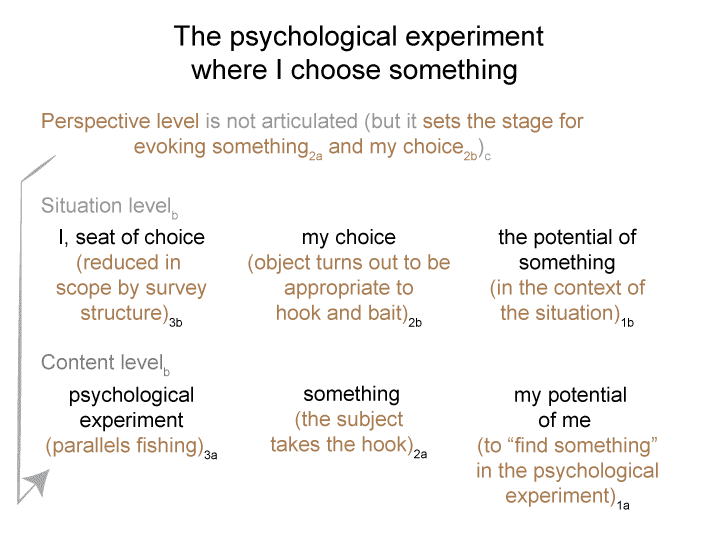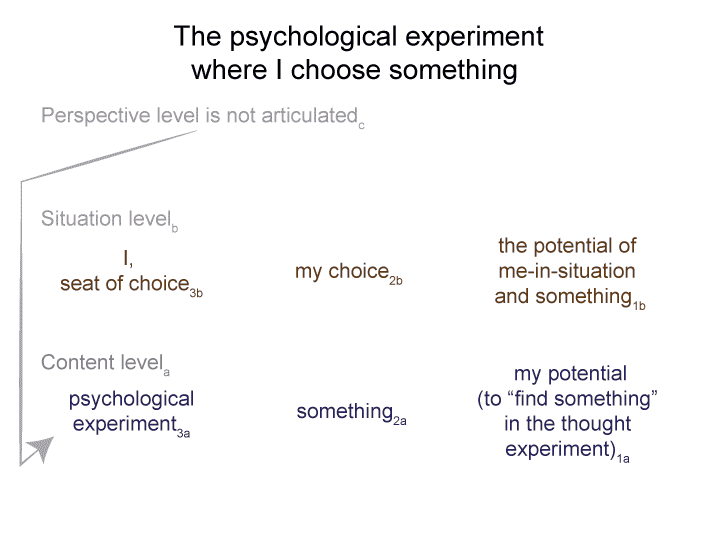Man and Sin by Piet Schoonenberg (1964) 2.3 YC
[The only other actuality is ‘my choice2b’.
This item can legitimately be observed and measured because it belongs to the realm of actuality twice, as situation and as element in a nested form.
Again, the researcher is concealed in the way that the survey can be marked.
For example, the researcher may have already limited possibility1b to a choice from 1 to 5.]


